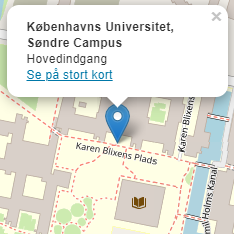What does a terrorist sound like?
Insecurity, Muslims and language in the UK and US
Forelæsning af Dr Kamran Khan (Universitat de Lleida, Catalonia).
Abstract
In recent years, there has been a 'predictive turn' (Heath-Kelly 2017) in detecting pre-emptive signs of possible radicalization among Muslims. This paper will explore the role of language within these detection processes as deviant linguistic practices by Muslims and those who appear Muslim to be the source of potential terrorism. I will draw on literature from security studies and will locate my analysis within the work of Jacques Derrida.
I will specifically use four examples in education and travel in which 'Muslims' alert others through their use of particular words and languages to create insecurity. In so doing, individuals are empowered, through official and non-official referral practices, to report the 'Muslims' in question as potentially dangerous. In each case, particular inferences are made, based on words and languages, to predict what the accused individuals will do in the future.
Drawing on Derrida's notion of the shibboleth linguistic identifier of (non) belonging, I will argue that policies, discourse and actions of the State ensure the racialized pre-conditions to assess, linguistically and in terms of determining security risk, who is a danger to the country. By doing this, individuals are able to accuse Muslims with immunity and, indeed, are encouraged to do so.
In conclusion, the judgment of Muslims in these cases means that they enter a 'pre-crime' space where they lack legal protection and thus remain potentially vulnerable to the interpretation of who they are and what they say.
References
Heath-Kelly, C. (2017). The geography of pre-criminal space: epidemiological imaginations of radicalisation risk in the UK Prevent Strategy, 2007–2017
Critical Studies on Terrorism, 10(2), 297-319

